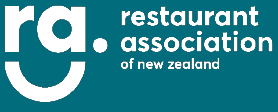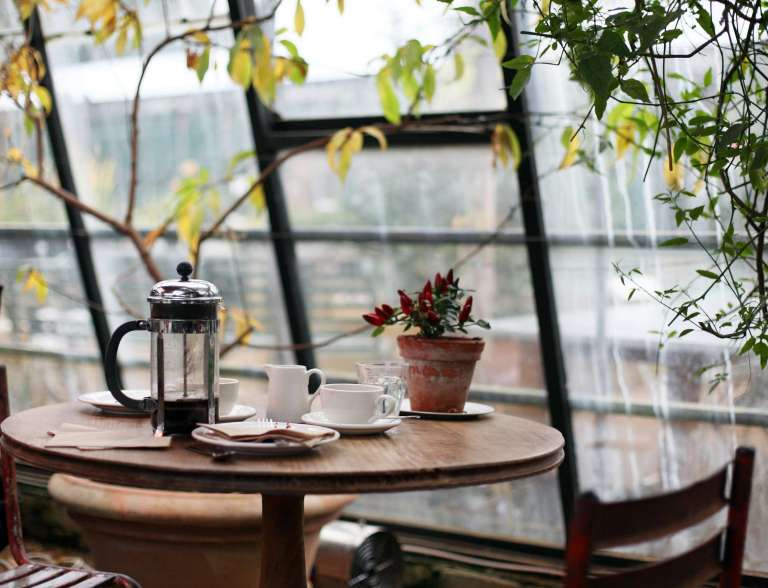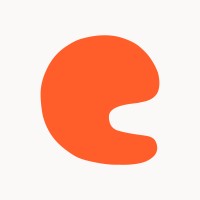Member only content
Savour is proudly brought to you by

-
Checking it Twice – Health and Safety Considerations for your Work Function
-
Why the hospitality industry supports a return to the office
-
Surviving Financial Strain: Restructuring Strategies for NZ Hospitality Employers
-
Rent Reviews Unveiled: The Ultimate Guide for Hospitality Tenants
-
The Vital Role of Reputation Management in the Hospitality Industry
-
Covering Your Bases: A Comprehensive Guide to Business Insurance in New Zealand
-
Understanding Trial Periods

Savour
The Magazine of the Restaurant Association of New Zealand
From MasterChef to Mental Health Pioneer: Tim Reid's Journey to Create Helmet
17 Apr 25Tim Reid, winner of New Zealand’s MasterChef in 2015, recently joined the Restaurant Association’s “Tales From the Past” podcast to discuss his new venture, Helmet—a groundbreaking mental health app specifically designed for hospitality workers that is being created in partnership with the Restaurant Association.
In an industry where mental health challenges are commonplace but rarely discussed openly, Reid’s candor about his own struggles and his innovative approach to supporting others offers valuable insights for hospitality professionals at all levels.
A Journey Through Darkness to Light
Reid’s path to becoming a mental health advocate wasn’t straightforward. Originally trained as a physiotherapist, he struggled with depression during his studies, reaching a critical point when he attempted to take his own life.
“My therapist was massive in encouraging me that it was my responsibility to my mental health and well-being to put myself in positions of light,” Reid shared during the podcast. “Light was kind of our code name for hope.”
He found that light in unexpected places—hunting and spearfishing. “Ironically, it felt like when I was under the waves I could breathe. And when I was up in the hills, it felt like my problems were kind of below me.”
The turning point came after shooting his first deer. Reid butchered it himself (putting his physiotherapy knowledge of anatomy to good use) and prepared a dinner for ten close friends. What should have taken three hours stretched into twelve, but the experience was transformative.
“It sounds Disney and cliche, but it’s a moment that genuinely changed my life,” he explained. “I saw the light and the hope extended through that entire journey and process. I was able to look at the people I loved the most in this world, and I had been able to give to them and provide and create something that created positive memories.”
This revelation—that hope could be amplified in the context of community—became the cornerstone of Reid’s journey out of depression and launched his passion for cooking. This fundamental insight now drives his approach to mental health support in the hospitality industry.
From MasterChef to Michelin Stars
Just four years after that pivotal dinner, Reid competed in and won MasterChef New Zealand in 2015. During the podcast interview, he was refreshingly honest about his victory: “I wasn’t the best cook on the show,” he admitted. “I’m just super competitive as hell.”
What many viewers didn’t see was how challenging the aftermath proved. The media was harsh, with one major New Zealand newspaper publishing an article titled “Tim Reid will never amount to anything” the day after his win.
“To have this platform that you’re given, a desire to change the world, to win a platform, to have a platform and then feel like the nation is against you… it was incredibly debilitating and filled me with severe anxiety,” he revealed.
Feeling like a fraud despite publishing a cookbook and working on TV, Reid made a bold decision: he decided the only way forward was to “earn the right” to his success. He emailed his favorite restaurant in the world, offering to work for free until they offered him a job. This determination led him to Sweden’s acclaimed Fäviken, a two-Michelin-star restaurant that was ranked 13th on the World’s 50 Best Restaurants list at the time.

From there, Reid went on to work at top establishments in Norway and Sweden, including a three-Michelin-star restaurant that reached 32nd on the World’s 50 Best list during his tenure. It’s a resume that would make any chef proud, but as Reid would explain, the cost was significant.
The Breaking Point
The high-pressure environment of elite kitchens took its toll on Reid. Working long hours in a culture where “perfection is the only thing accepted,” he found himself isolated from the community that had previously been his source of hope.
“The hopelessness kind of started to creep back in, and the long hours and the pressure took its toll,” he explained during the podcast. What happened next is a scenario familiar to many in the hospitality industry: Reid experienced a severe panic attack that his body “faked as a stroke,” leaving him unable to get off the couch for six months.
It was a friend and former colleague, Luke, who helped Reid gradually return to work, starting with one day a week at a wine bar and eventually returning to full-time employment. He was preparing to move to New York to work at another prestigious restaurant when COVID hit, bringing him back to New Zealand.
The Birth of Helmet

Working in Auckland after his return, Reid witnessed burnout in the people around him—a sight that, in his words, “broke my heart.” The catalyst for his current venture came from personal tragedy when his best friend in Norway, Luke, took his own life.
This heartbreaking loss spurred Reid to create Helmet, a mental health app built on a key insight from his own experience: “When I was really struggling, I didn’t have capacity for change. Distress and depression, anxiety, whatever you’d like to call it, forces you inwards. You find it incredibly difficult to ask for help, seek help, make decisions.”
But the people around him—parents, friends, and now his wife—were “desperate to help and support.” Reid realized that the most effective mental health interventions might come not from targeting the individual in distress, but from empowering those around them.
“If we could just inform them or give them the tools required to help contribute and support their loved one going through distress, then what we actually know is that the outcomes are incrementally bigger than those of professionals,” Reid explained during the interview.
How Helmet Works
Helmet’s concept is built around an innovative approach to mental health support. The app is designed to give supporters—the friends, family, and colleagues of those struggling with mental health issues—the resources they need to effectively help. This approach seems particularly well-suited to the hospitality industry, where workers often face long, odd hours in high-pressure environments.
“For an industry built on community, this makes absolute sense,” Reid emphasized during the podcast. “For our comrades that we stand shoulder to shoulder with, for our spouses, for our friends, our family who work in the industry… expecting one-on-one help from professionals doesn’t make a whole lot of sense. But if we can empower the community to support one another and be there when it matters the most, then that’s the answer we need in this industry in particular.”
Helmet is currently in beta testing and will be available to members of the Restaurant Association of New Zealand and Hospitality New Zealand, along with their teams, starting in April. Reid and his team are actively seeking input from industry workers at all levels—from owner-operators to pot washers and casual employees—to ensure the app addresses the specific challenges faced in hospitality.
A Vision for the Future
Reid’s ultimate goal is to create an industry “where people come to, where they enjoy working, because it is so fun when it’s done right.” He acknowledges the unique pressures faced by hospitality workers, from the paradoxical stress of being too busy to the uncertainty of struggling businesses, and the feeling that so much is out of one’s control.
“It’s not about removing the challenging times from life,” Reid emphasized during the interview. “It’s being able to cope with them.”
With Helmet, Reid hopes to help hospitality workers and their loved ones navigate these challenges together, fostering resilience and bringing enjoyment back to an industry that, at its best, can be “addictive” in the most positive sense.
“Let’s treat the people inside the industry as well as the people we serve,” Reid concluded. It’s a simple philosophy, but one that could transform the hospitality landscape for everyone involved.
Tim Reid’s mental health app Helmet will be available to members of the Restaurant Association of New Zealand in early 2025. Those interested in contributing to the development of the app or participating in beta testing can reach out to Reid and his team through these organizations.
 Member only content
Member only content
Savour is proudly brought to you by

-
Checking it Twice – Health and Safety Considerations for your Work Function
-
Why the hospitality industry supports a return to the office
-
Surviving Financial Strain: Restructuring Strategies for NZ Hospitality Employers
-
Rent Reviews Unveiled: The Ultimate Guide for Hospitality Tenants
-
The Vital Role of Reputation Management in the Hospitality Industry
-
Covering Your Bases: A Comprehensive Guide to Business Insurance in New Zealand
-
Understanding Trial Periods